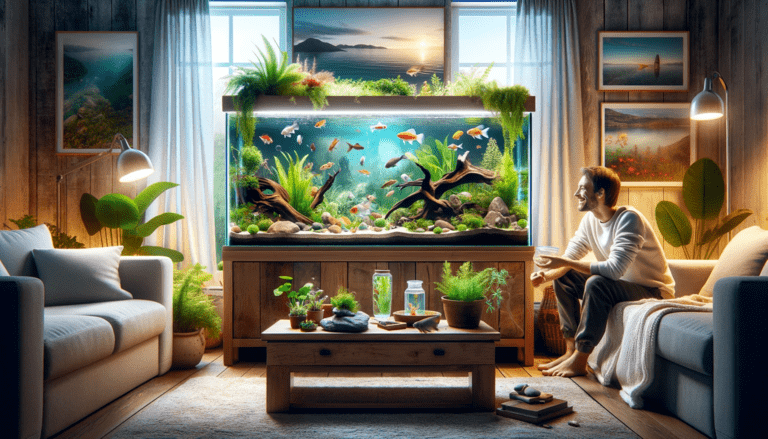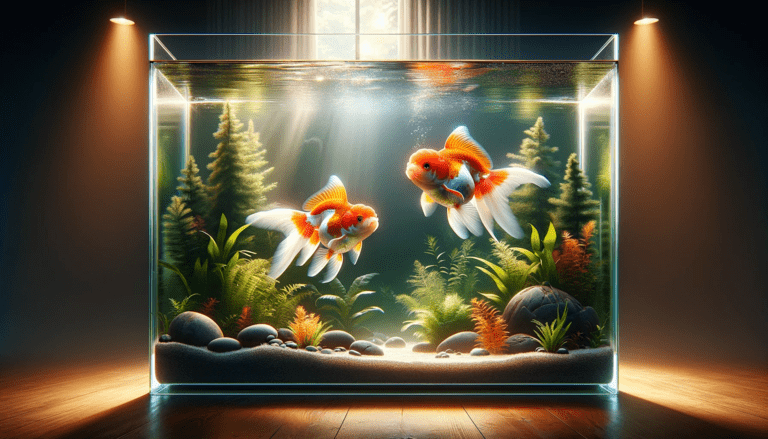Maintaining a saltwater aquarium can be a challenging yet rewarding experience. Unlike freshwater tanks, saltwater aquariums require more meticulous attention to detail and a deeper understanding of marine life. But the vibrant colors and exotic marine creatures that thrive in these settings make the effort worthwhile. In this article, we’ll explore the complexities involved in maintaining a saltwater aquarium.
Understanding the Marine Environment
The first step in saltwater aquarium maintenance is understanding the marine environment. Saltwater creatures are adapted to live in oceanic conditions, which are vastly different from freshwater environments. This means replicating the ocean’s unique properties, including salinity, pH levels, and temperature, within your aquarium.
- Salinity: The salt concentration in your aquarium needs to be consistent with natural seawater, usually around 35 parts per thousand. Regular testing and adjustments are necessary to maintain this delicate balance.
- pH Levels: The pH level, which measures the acidity or alkalinity of the water, is crucial for the health of marine life. Saltwater aquariums typically require a pH level between 8.1 and 8.4.
- Temperature: Tropical marine life thrives in warmer temperatures, generally between 75 and 80 degrees Fahrenheit. Maintaining this temperature range is critical for the well-being of your aquatic pets.
Equipment and Setup
Setting up a saltwater aquarium involves more than just filling a tank with saltwater. The equipment needed is specialized and more sophisticated compared to freshwater setups.
- Filtration System: A robust filtration system is essential to maintain water quality. Saltwater tanks often use a combination of mechanical, chemical, and biological filtration to keep the water clean and safe for marine life.
- Lighting: Many saltwater aquarium inhabitants, especially corals, require specific lighting conditions to thrive. Advanced lighting systems that mimic natural light cycles and intensities are often necessary.
- Protein Skimmer: This device is crucial for removing organic compounds from the water, helping to reduce the likelihood of algae blooms and maintaining water clarity.
Regular Maintenance
Regular maintenance is key to a healthy saltwater aquarium. This involves more than just feeding the fish and cleaning the tank.
- Water Changes: Regular water changes are necessary to remove excess nutrients and replenish trace elements. Typically, 10-20% of the tank water should be changed every two weeks.
- Testing Water Parameters: Frequent testing of water parameters like ammonia, nitrite, nitrate, pH, and salinity is crucial to detect any imbalances early on.
- Cleaning: Algae growth is common in saltwater tanks. Regular cleaning of the tank walls, substrate, and decorations is essential to prevent excessive algae buildup.
Challenges and Solutions
Despite best efforts, saltwater aquariums can face various challenges.
- Algae Overgrowth: Algae can quickly take over a tank if nutrient levels are high. Regular water changes, controlling feeding, and using algae-eating creatures can help manage this.
- Disease Management: Saltwater fish are susceptible to various diseases. Quarantining new fish and regular observation for signs of illness are crucial preventive measures.
Conclusion
While maintaining a saltwater aquarium is certainly more challenging than managing a freshwater tank, the beauty and diversity it offers are unmatched. It requires dedication, patience, and a willingness to learn. However, the sense of accomplishment from creating a thriving marine ecosystem in your home is incredibly fulfilling.
As we conclude our exploration of maintaining a saltwater aquarium, you might find yourself curious about the variety of fish that can be part of your marine adventure. If you’re considering which saltwater fish to choose for your aquarium, we have just the resource for you. Our Fish Guides page offers insights into different saltwater fish species, helping you understand their unique needs and characteristics. Feel free to visit our Fish Guides for more information and inspiration as you embark on or continue your saltwater aquarium journey.



